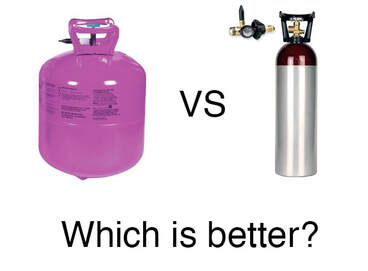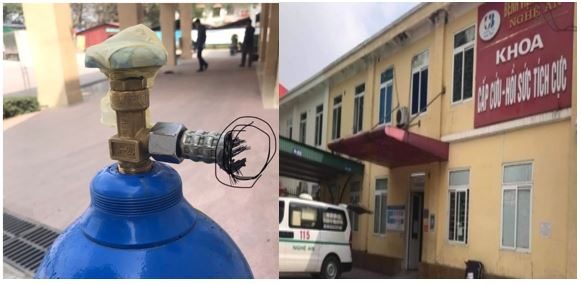|
propane tanks Publishes Apr. 18Introduction to Propane Tanks: Understanding the BasicsPropane tanks, you see them everywhere from backyard BBQs to heating homes in winter. Think of these tanks as the solid, reliable friends that keep your cookouts fun and your rooms warm. Propane, a gas stored under pressure in these tanks, is a popular choice because it's efficient and affordable. But, it's not all about hooking up the tank and firing up the grill. Knowing the basics about propane tanks is key. They come in various sizes - small ones for your portable grill and big ones that can heat your whole house. The trick is to handle them right because, despite being super useful, they can be dangerous if not respected. Store them outside, keep them upright, and always check for leaks. Simple, right? Getting to grips with these basics ensures safety and maximizes efficiency, keeping the good times rolling without a hitch. Replace Choosing the Right Storage Location for Your Propane TanksWhen it comes to storing propane tanks, picking the right spot is crucial. You want a place that's both safe and makes sense. First off, always store propane tanks outside. Inside storage is a no-go because of the risk of leaks and potential hazards. Aim for a well-ventilated area to prevent gas build-up if there is a leak. Keep it on a flat, non-flammable surface. Concrete or stone is your best bet. Avoid grass, as moisture can rust the tank. Also, steer clear of direct sunlight. Heat can increase the pressure inside the tank, posing a risk. You’ll want to place it somewhere out of the way, where it won’t get knocked over or mess with daily activities. Lastly, follow local laws and guidelines. Some places have specific rules about how far tanks must be from other structures or property lines. Stick to these and you’re set for a safe storage spot. Indoor vs. Outdoor Storage: Best PracticesStoring propane tanks correctly is crucial, whether indoors or outdoors, to ensure safety and prolong their lifespan. Let's keep it simple and get straight to the point. For outdoor storage, always keep propane tanks in an upright position in a space that's well-ventilated. This prevents the risk of leaks and minimizes the chance of the gas getting trapped. Ensure the tanks are placed on a stable, non-flammable surface like concrete. Avoid placing them near any source of ignition, such as grills or fire pits. Direct sunlight and extreme temperatures can be harmful, so finding a shaded spot is a good idea. When it comes to indoor storage, the rule is simple - don't do it. Storing propane tanks indoors, including garages or sheds, poses a significant safety hazard. Even a slight leak can lead to gas accumulation, creating a risk for fire or explosion if it comes in contact with an ignition source. Remember, whether you're storing your propane tank for a short period or an extended time, checking for leaks and ensuring the valve is closed tightly is essential. If you ever suspect a leak, move to a safe distance and call for professional help immediately. Always prioritize safety over convenience when it comes to handling and storing propane tanks. The Importance of Proper Ventilation for Stored Propane TanksKeeping propane tanks properly ventilated is crucial. Why? Because propane is highly flammable. A leak in a poorly ventilated area can quickly become a serious hazard. To prevent accidents, follow simple but key guidelines. First, always store propane tanks outside. Indoors is a no-go; even a shed or garage is risky because they're not designed for the kind of air flow propane storage requires. If you're thinking, "But my tank is outside, is that enough?", not quite. Make sure it's in a well-ventilated area, away from any potential sources of ignition like grills or smokers. Direct sunlight is also a bad idea. Overheating increases the pressure inside the tank, raising the risk of leaks or explosions. In short, treat your propane tank with respect. Store it right, and you cut down the risks significantly. Safety Tips for Handling Propane TanksWhen handling propane tanks, think safety first. Always keep these tanks upright and outside. Never, and I mean never, bring them indoors. That's asking for trouble. If you're moving a tank, keep it secure so it doesn't play bumper cars in your trunk. Imagine the damage from that! Check the tank for leaks often. Soap and water can be your best friend here. See bubbles when you apply it to the tank's connections? You've got a leak. Fix it or replace the tank. And speaking of replacements, know when to say goodbye to your tank. If it's rusting or damaged, it's time for a new one. Don't take chances. Lastly, keep it cool - propane tanks and direct sunlight don't mix. Keep them in the shade, safe from the sun's gaze. Handle with care, and you'll avoid nasty surprises. How to Check for Leaks and What to Do If You Find OneChecking for leaks in your propane tanks is crucial for safety. Do it the easy way. Use a simple soap and water solution. Mix soap and water, then spread it over the tank's connections. Turn the gas on slightly. If you see bubbles forming, that’s a leak—no doubt about it. If you find a leak, here's the drill. First, turn off the gas. Do it immediately. If you can't access the valve or it doesn't shut off, leave it to the experts. Don’t try to be a hero and fix it yourself. Next step, clear the area. Make sure everyone knows to stay away. This is no time for a crowd. Then, call in the pros. Get your supplier or a qualified technician on the line. They'll handle it from here. Remember, no flames or sparks. That means no smoking, no lighters, and keep electrical devices off until you're clear of the issue. Safety first, always. Transportation Guidelines for Propane TanksWhen it comes to moving propane tanks, safety is key. Whether it's a short drive to refill or transporting a new tank home, keep the tank upright at all times. This prevents leaks and maintains the pressure valve and safety features in the correct position. Never, and I mean never, let a propane tank roll around in your vehicle. Secure it so it doesn't become a dangerous projectile if you stop suddenly. Windows down, please. Good airflow is crucial to prevent the build-up of gas should there be a leak. Once you're moving, straight home is your only stop. No errands with a propane tank in the car. Got it? This isn't like returning library books. Safety first, convenience second. Stick to these simple guidelines, and you're set for a smooth, hazard-free ride. Seasonal Storage Tips: Preparing for Temperature ChangesWhen seasons change, so do the conditions for safely storing your propane tanks. It's essential to adapt and ensure your tanks are prepared for whatever the weather throws at them. First off, always store propane tanks outside. Inside storage, even in a garage or shed, poses a risk if a leak happens. In hot weather, keep your tanks in a shaded area but not directly on the ground. Contact with warm ground can increase the pressure inside the tank, leading to potential safety issues. During colder months, avoid placing tanks in direct contact with snow or ice. Extreme cold can reduce the pressure inside the tank, affecting its performance. Regardless of the season, ensure the tank's storage area is well-ventilated, away from heat sources, and secured to prevent tipping. These simple adjustments will ensure your propane is safely stored throughout the year, ready for use whenever you need it. Maintenance and Inspection: Keeping Your Propane Tanks SafeKeep your propane tanks safe; it's not just a suggestion, it's a must. You don't want a safety hazard on your hands. First, make it a regular habit to inspect your tank for rust, dents, or any signs of wear and tear. These are red flags. If you see them, it means it's time to take action. Don't try to fix these issues yourself. It's not worth the risk. Get a professional to look at it. Next up, keep your tanks clean. Dirt and grime can hide problems. A simple wipe-down with soapy water does the trick. But here's the deal: make sure the tank is dry before you reconnect it. Water and propane are not friends. Also, be smart about where you store your tanks. Keep them outside, not in your garage or basement. Propane tanks and enclosed spaces? Bad idea. They need to be in a well-ventilated area, away from your living spaces. And remember, upright is the right way to store them. This keeps the pressure release valve in the correct position to work properly. Lastly, if your tank is empty or you suspect a leak, handle it wisely. Don't throw it in the trash. Propane tanks need special disposal. Check with your local waste management on how to properly dispose of or recycle your tank. Remember, maintenance and inspection are not just chores. They're your first line of defense in keeping your propane tanks safe. Stay vigilant, follow these steps, and you'll significantly reduce the risks associated with propane tank storage and usage. Summary and Key Takeaways: Safer Propane Storage and HandlingPropane, a widely used fuel for grilling, heating, and more, demands respect and caution in its storage and handling. Always keep tanks upright to prevent leaks. For outdoor storage, pick a spot away from your home and direct sunlight. Indoors, ensure a well-ventilated space, preferrably outside. Never store a tank in basements or living areas. Regularly check for leaks by applying soapy water to the tank's connections and watching for bubbles. If you smell gas, act fast but calmly—shut off the valve if safely possible and leave the area. Remember, propane is flammable and can be dangerous if not managed properly. By following these steps, you keep the risks low and your confidence in using propane high. Stay informed, stay safe.
0 Comments
Introduction to Propane Heaters and Safety ImportancePropane heaters are a popular choice for warming up spaces where conventional heating might not reach or isn't available. They're portable, efficient, and when used correctly, safe. But it's crucial to understand that while they bring warmth and comfort, they also come with risks if not used properly. Knowing how to operate propane heaters safely is non-negotiable. Every year, accidents happen because of misuse or lack of knowledge. Fires, explosions, and carbon monoxide poisoning are serious risks. The good news? These incidents can be avoided. Safety with propane heaters isn't just about keeping your space warm; it's about ensuring you, your loved ones, and your property stay safe. So, let's dive into the essential safety tips to keep in mind.
Understanding the Basics of Propane HeatersPropane heaters, those handy gadgets that warm our spaces, come with their share of must-know facts for safety. First off, they run on propane gas, a highly flammable fuel, which means we need to handle them with care. They're sought after for being portable and efficient in heating, perfect for outdoor activities or supplemental indoor heat. But here's the deal: their efficiency comes from combustion. This process consumes oxygen and emits carbon monoxide (CO) along with other gases - and that's where we need to be sharp. Inadequate ventilation can lead to a buildup of CO, which is a big no-no as it's a silent, odorless threat to our well-being. So, when using a propane heater, ensuring it's in a well-ventilated area is non-negotiable. Always follow the manufacturer's instructions to the letter, and never, ever use them in confined spaces unless they're explicitly designed for that. Keep that in mind, and you’re on your way to embracing the warmth safely. Tip 1: Proper Installation and VentilationGetting your propane heater installed correctly is crucial. A professional should always do the job to avoid any mishaps. Once installed, proper ventilation is key. Propane heaters produce carbon monoxide, a dangerous gas you can't see or smell. So, make sure the room is well-ventilated. If you're using a portable propane heater, never leave it running unattended and always crack a window open to let fresh air in. This will help prevent carbon monoxide buildup, keeping you safe while you stay warm. Tip 2: Regular Maintenance and InspectionKeeping your propane heater in top condition isn't just smart; it's essential for safety. Regular maintenance and inspections can prevent dangerous situations before they happen. Always check your heater for leaks or damage, especially before using it for the first time each season. It's a good idea to have a professional look at it once a year. They can spot problems you might miss. Simple actions like keeping the heater clean and not blocking the vents can significantly reduce risks. Remember, a well-maintained heater is a safe heater. Stay warm and safe by giving your heater the attention it deserves. Tip 3: Safe Usage Practices for Propane HeatersTo keep you and your family safe while using propane heaters, follow these simple rules. First off, always read the manufacturer's instructions before you start using the heater. It sounds obvious, but you'd be surprised how many skip this step. Next, only use propane heaters in well-ventilated areas to avoid the dangerous build-up of carbon monoxide. This means keeping windows or doors slightly open to let fresh air circulate. Never use these heaters in small, closed rooms. Also, keep the heater on a stable, flat surface to prevent it from tipping over. If your heater does tip, it could become a serious fire hazard. Plus, keep anything flammable like curtains, papers, or clothes at least 3 feet away from the heater. Avoid leaving the heater on while sleeping or when you're not in the room. If you smell gas or the carbon monoxide detector goes off, turn off the heater immediately, open the windows, leave the room, and call for help. Safety first, always. Tip 4: Installing Carbon Monoxide DetectorsTip 4 is a crucial one: installing carbon monoxide detectors. Propane heaters can be safe, but they also have the risk of leaking carbon monoxide. This gas is tricky because you can't see it, smell it, or taste it. It's like a ghost. But it can make you very sick, or worse, it can be deadly. Having carbon monoxide detectors in your home is like having a watchdog that barks when this invisible threat is around. Put one in every room where you use a heater and check the batteries often. It's a simple step, but it could save your life. Remember, safety is not expensive, it's priceless. Tip 5: Storing Propane Tanks SafelyWhen it's time to put the propane heater away, don’t just chuck the tank in a shed and forget about it. The way you store your propane tank matters a lot. First up, always store propane tanks outside. Inside storage is a no-go because if they leak, you’re inviting a disaster. Full or empty, keep them in an upright position to prevent leaks. Avoid places that get too hot – think direct sunlight or next to the BBQ grill – as high temperatures can increase the pressure inside the tank, risking a rupture. Check the tank for any damage or rust before you tuck it away. If it looks sketchy, it's time for a new one. Remember, safety first, hassle last. Keep these points in mind, and your tank will be good until you need it again. Recognizing Common Signs of Propane Heater IssuesWhen using a propane heater, staying alert to any signs of trouble is key. Here's what you should keep an eye on: If you smell gas, stop everything. This is a no-brainer but needs to be top of the list. A gas smell can mean a leak, which is dangerous. Next, keep your ears open for any strange sounds like hissing or popping coming from your heater. Odd noises could point to a problem inside the unit. Watch out for yellow or orange flames too. Propane heaters should have a blue flame. A different color indicates incomplete combustion, which could release harmful gases. Another red flag is soot buildup around the heater. Soot signals incomplete burning and can mess with your indoor air quality. Lastly, if your heater keeps shutting off by itself or refuses to start, it might be crying out for help. These signs don't just mean your heater is acting up. They're warning signals that your safety might be at risk. Keep these in mind, and you'll help ensure your propane heater does its job safely. Emergency Preparedness: What to Do in Case of a LeakIf you smell gas or suspect a leak, acting fast is key. First, don't panic. Here's what you gotta do: Turn off the propane source immediately—if you can reach it safely. Don't flip any switches, including lights, as this could ignite the propane. Open all doors and windows to get the gas out. Get everyone out of the area, and from a safe distance, call your propane supplier or the fire department. Don't go back until they give you the all-clear. Remember, propane leaks can be dangerous, but knowing these steps helps keep everyone safe. Conclusion: Staying Safe with Propane HeatersPropane heaters are a solid choice for warming up your space, but safety should always come first. Always read the manual before you start using your heater. Test your carbon monoxide detectors regularly to ensure they’re working right. Keep flammable materials far away from the heater to avoid any dangerous situations. If you smell gas, act fast. Turn off the heater, leave the area, and call for help. Remember, the key to enjoying your propane heater lies in handling it mindfully and respecting the safety guidelines. Stay safe and warm. NITROGEN VS. Co2
Nitrogen is a gas that is often used to infuse beer. It has a smaller molecular size than carbon dioxide, which gives nitrogenated beer a smoother, creamier texture and taste. The bubbles in nitrogenated beer are also smaller than the bubbles in carbonated beer, which creates a thicker, more persistent head. This makes nitrogenated beer ideal for dark, heavy beers like stouts and porters. There are a few reasons why some beers use nitrogen. First, nitrogen can help to preserve the flavor of beer by preventing it from oxidizing. This is because nitrogen is less soluble in water than carbon dioxide, which means that there is less oxygen dissolved in the beer. Second, nitrogenated beer has a smoother, creamier texture that is often preferred by some drinkers. Third, nitrogenated beer can be served at a lower temperature than carbonated beer, which can help to bring out the flavor of the beer. Nitrogen is safe to drink in beer. In fact, it is the same nitrogen that we breathe in every day. However, it is important to consume nitrogenated beer in moderation, just like any other type of beer. Here are some of the benefits of using nitrogen in beer:
Carbon dioxide (CO2) is the most common gas used to carbonate beer. It has a number of advantages over other gases, including:
It has been said "balloons make a party"! So if we have a party coming up, there are couple of options when it comes to helium and balloons. You can buy a disposable bottle of helium from Target(or another large chain), or you can get a re-fillable helium bottle from a gas supply store like us. Why should we avoid getting a disposable helium tank?
 Many businesses like Hospitals, Veterinarians, Firefighters, and Dentists use Oxygen(02) every day. Are there risks? Absolutely! For instance, what can happen if grease/oil is on your oxygen regulator and you hook it up? The sane thing that happened on the Apollo 13. The words "Houston, We've got a problem" was a result of an oxygen tank exploding on the Apollo 13. Even though these accidents are rare, they do happen. What can keep us mitigate the risks and keep us safe when using Medical Oxygen? Here are a few suggestions: To use an oxygen regulator safely, follow these steps:
In conclusion, make sure the regulators you use are not old or leaking. Have them inspected yearly, as federal law demands. Always check for leaks and cracks in the hoses you using. As a general rule, hoses and regulators should be changed every five years.
By following the above safety practices you will accomplish the following: You will never have to say "Houston we've got a problem" |
AuthorI have been in gas industry for over thirty years. Over the years we have kept our customers safe and their complex systems in working order. Archives
April 2024
Categories |
Proudly powered by Weebly





 RSS Feed
RSS Feed